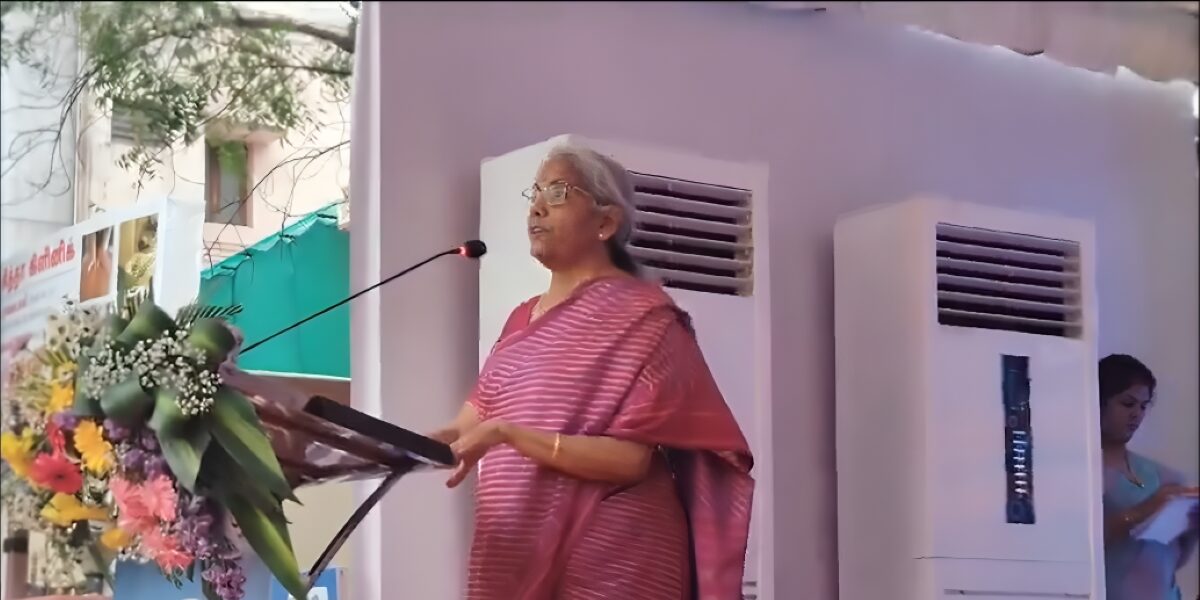Her comments came a day after the EC published a list of subscribers of the electoral bonds revealing that BJP was the biggest beneficiary.

Nirmala Sitharaman speaking to the media. (Screengrab)
Finance Minister Nirmala Sitharaman on Friday, 15 March, denied any link between the functioning of investigative agencies, including Enforcement Directorate (ED) raids, and electoral funding to the ruling party, saying these allegations are just assumptions.
“What if the companies gave the money, and after that, we still went and knocked at their doors through ED (Enforcement Directorate)? Is that a probability or not…It is an assumption that the ED went and knocked at their doors, and to save themselves they came up with funds. The second assumption is that are you sure that they have given (electoral bonds) to BJP? What if they probably gave to regional parties,” she said while speaking at India Today Conclave.
The finance minister’s comments came a day after the Election Commission of India published a list of subscribers of the electoral bonds and funds mobilised by various political parties.
The list provided by the State Bank of India (SBI), the issuer of electoral bonds, was published after the order of the Supreme Court.
Sitharaman said a political funding mechanism scrapped by the Supreme Court as ‘unconstitutional’ was an improvement on the past but a more transparent system should be put in place.
“It should be our effort to learn from this. If at all, whenever something comes (law regarding political funds), we have to introduce elements of lessons that we have taken from this to make sure there is transparency and that transparency will have to be progressively better than each earlier system,” she said.
Recalling her predecessor Arun Jaitley during whose regime the electoral bond scheme was introduced, she said even he was of the view that it is not a perfect system but it is one bit better.
Whatever money reaches to a party through this mechanism was white money, she said, adding that it was not a perfect system, but you moved from almost wild to something not perfect but one bit better.
On the way forward, Sitharaman wondered “If we are going back to the same old wild system of cash or cheque etc in the absence of an electoral bond scheme”.
“If corporates can fund…under which scheme of things or which law — all that will have to be worked out. Nobody is saying parties cannot be funded. There are issues with those sorts of things which of course will have to be looked into. You can’t afford to have shell companies or loss-making companies (funding political parties),” she said.
In its landmark verdict on 15 February, the apex court had scrapped the Centre’s electoral bonds scheme that allowed anonymous political funding, calling it “unconstitutional” and ordered their disclosure.
The electoral bonds scheme was introduced on 2 January, 2018. Electoral bonds were pitched as an alternative to cash donations made to political parties as part of efforts to bring transparency to political funding.
The first sale of electoral bonds took place in March 2018.
(Disclaimer: The headline, subheads, and intro of this report along with the photos may have been reworked by South First. The rest of the content is from a syndicated feed, and has been edited for style.)

Jul 20, 2024

Jul 19, 2024

Jul 07, 2024

May 14, 2024

May 14, 2024

Apr 24, 2024